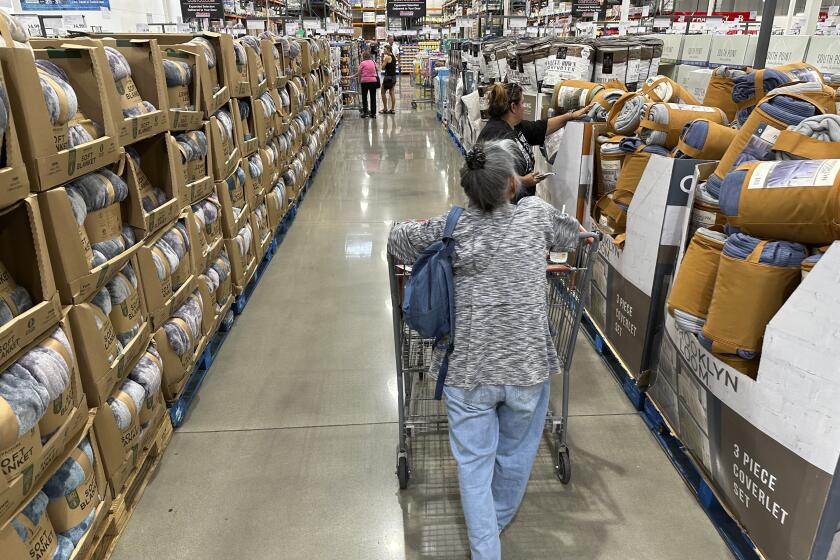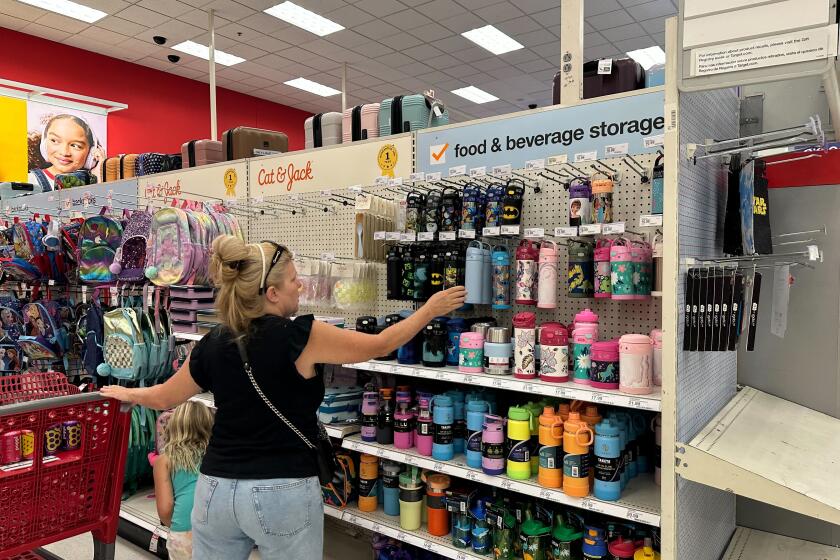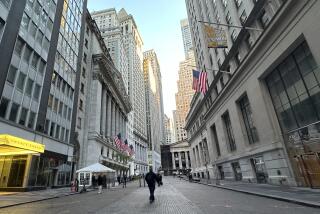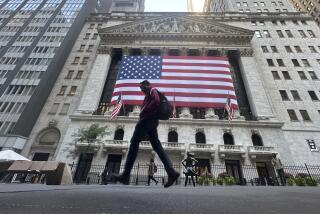A winning day on Wall Street: Dow rises more than 300 points as stocks worldwide rally
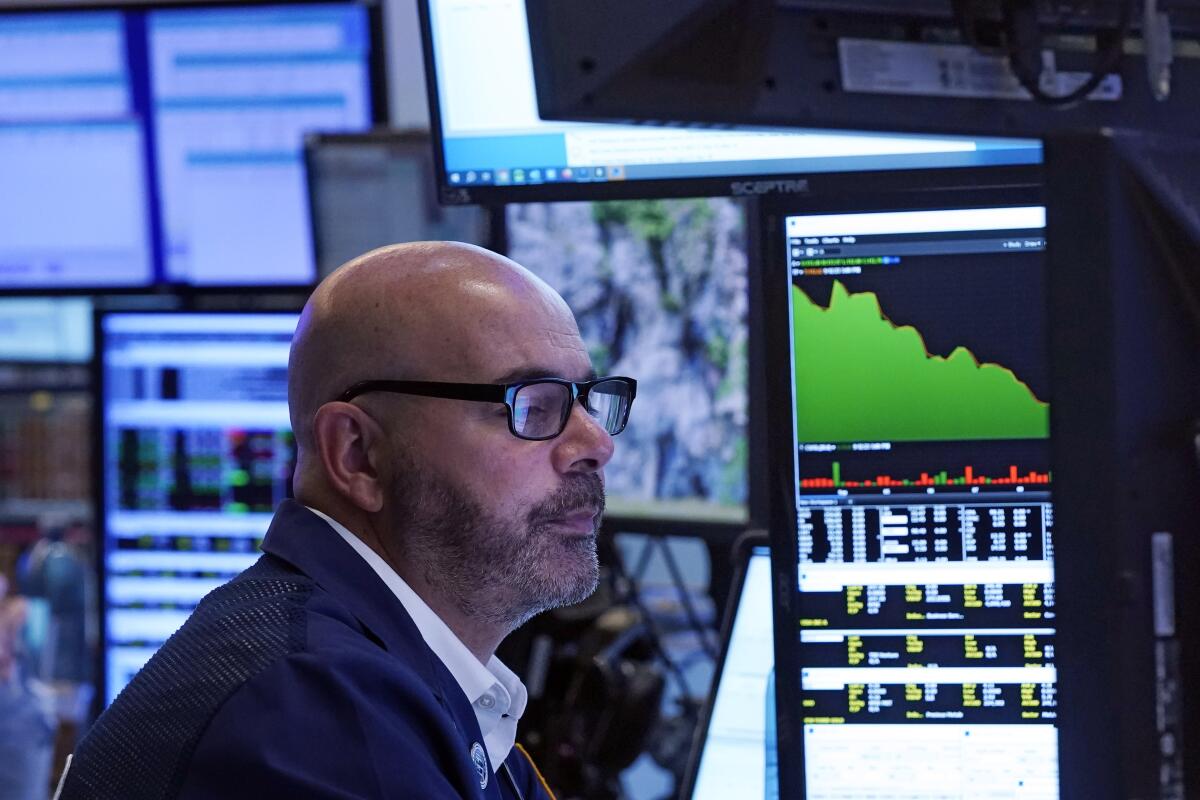
Stocks rose on Thursday after a blizzard of reports suggested the U.S. economy is still humming, though inflation may be too.
The S&P 500 climbed 0.8% for its best day in two weeks. The Dow Jones industrial average rallied 331 points, or 1%, and the Nasdaq composite added 0.8%.
Some of the strongest action was in the bond market, where Treasury yields swung up and down several times. Although the reports bolstered hopes the U.S. economy will avoid a deep recession, the strength suggested by the data could also add upward pressure on inflation.
One report said U.S. shoppers spent more at retailers last month than economists expected. Such spending has been a linchpin keeping the economy out of a recession, but it could also be encouraging retailers to keep trying to raise prices further.
A spike in gas prices pushed up inflation in August, yet most other costs rose at a more modest pace, evidence that consumer price increases overall are still cooling.
The strong spending is a result of a remarkably resilient job market, which has remained solid despite a steep jump in interest rates since early last year. A separate report Thursday morning said fewer workers applied for unemployment benefits last week than expected, which implies fewer layoffs.
A third report said prices paid at the wholesale level rose more last month than economists expected. That could be a discouraging signal for households if the higher-than-expected inflation gets passed on to consumers.
The Federal Reserve has been hiking rates sharply to try to get inflation back down to its 2% target. The hope on Wall Street is that a slowdown in inflation since last summer means the Fed is done with its rate hikes, which slow the economy and hurt investment prices.
Treasury yields initially jumped after Thursday’s reports on fears they could push the Fed to raise rates again or at least to keep rates higher for longer. But economists pointed out much of last month’s acceleration in wholesale inflation was due to higher fuel prices, which can shift direction sharply and quickly.
As back-to-school shopping is forecast to reach a record $41.5 billion this year, parents and teachers in L.A. debate what’s essential on their lists — and get creative to make ends meet.
Ignoring those and other particularly volatile prices, underlying inflation trends in Thursday’s report were closer to economists’ expectations. That echoed a report from a day earlier on inflation at the consumer level, which showed overall inflation accelerated to 3.7% in August largely because of a leap in fuel prices.
After a few swings up and down through the day, the yield on the 10-year Treasury rose to 4.29%, up from 4.25% late Wednesday.
The two-year Treasury yield, which more closely tracks expectations for the Fed, also bounced around after the reports. It ended up rising to 5.00% from 4.98% late Wednesday.
Traders pared back expectations for the Fed to raise rates again sometime this year, though they’re still betting on a roughly 40% chance of that, according to data from CME Group.
Hopes that the Fed may be done hiking rates may be overdone, warned Mike Loewengart, head of model portfolio construction at Morgan Stanley Global Investment Office.
“The Fed is still likely to remain on hold next week, but if the economy continues to surprise to the upside, all bets are off as to what they’ll do after their final two policy meetings of the year,” he said.
In the stock market, shares of chip designer Arm Holdings jumped 24.7% in their debut. The strong welcome could be an encouraging signal for the IPO market, which has slowed since the stock market began tumbling early last year on fears about higher interest rates.
Stocks of energy producers also rose, thanks to another rally for oil prices. Crude has been climbing for months as oil-producing countries try to support its price by curtailing their supplies. A barrel of U.S. crude rose back above $90, helping Exxon Mobil to climb 1.8% and Marathon Oil to rise 2.9%.
HP slumped 1.8% after Warren Buffett’s Berkshire Hathaway revealed it trimmed its stake in the personal computer and printer company. Berkshire still owns 115.5 million shares in HP after selling 5.5 million earlier this week.
The continued strength of the U.S. economy could require further interest rate increases, Federal Reserve Chair Jerome Powell said in a closely watched speech that also highlighted the uncertain nature of the economic outlook.
Delta Air Lines, meanwhile, became the latest airline to cut its profit forecast because of higher costs. It said higher-than-expected costs for fuel and maintenance are cutting into its earnings, and its stock slipped 0.6%.
All told, the S&P 500 gained 37.66 points to close at 4,505.10. The Dow rose 331.58 points to 34,907.11, and the Nasdaq climbed 112.47 points to 13,926.05.
In stock markets abroad, indexes rose in Europe after the European Central Bank raised its key interest rate to a record high but also made statements seen as hinting that it won’t raise rates again for a while.
The hike is supposed to help undercut inflation among the countries that use the euro currency, but it adds pressure to an economy already seen as at risk for a recession.
France’s CAC 40 rose 1.2%, and Germany’s DAX returned 1%.
Indexes also climbed across much of Asia, with Japan’s Nikkei 225 up 1.4%.
AP writers Matt Ott and Elaine Kurtenbach contributed to this report.
More to Read
Inside the business of entertainment
The Wide Shot brings you news, analysis and insights on everything from streaming wars to production — and what it all means for the future.
You may occasionally receive promotional content from the Los Angeles Times.
